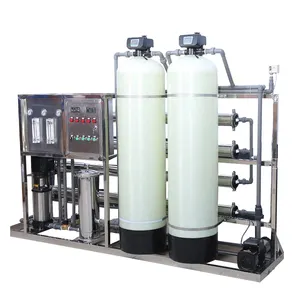Popular in your industry















Top categories
About ethanol production from molasses
Ethanol production from molasses is a well-established and widely used method in the industry. Molasses, a byproduct of sugar production, contains fermentable sugars that can be converted into ethanol through a process called fermentation. During this process, yeast is added to the molasses, and under controlled conditions, the yeast converts the sugars into ethanol and carbon dioxide. The resulting mixture is then distilled to separate the ethanol from the other components, yielding a high-purity ethanol product. Ethanol produced from molasses is commonly used as a biofuel, a solvent in various industries, and as an ingredient in the production of alcoholic beverages.
Advantages of ethanol production from molasses
Ethanol from molasses offers several advantages. One of the significant benefits is its sustainability. Utilizing molasses, a byproduct of the sugar industry, as a feedstock for ethanol production helps in reducing waste and making the overall process more environmentally friendly. Additionally, molasses is a cost-effective source of fermentable sugars, making ethanol production economically viable. This cost efficiency contributes to the competitiveness of ethanol as a biofuel. The process of ethanol production from molasses is also well-established and has been optimized over the years, resulting in a reliable and efficient method for generating ethanol. Moreover, molasses-based ethanol can be used as a cleaner alternative to traditional fuels, contributing to the reduction of greenhouse gas emissions in the transportation sector.
Applications of ethanol production from molasses
The applications of alcohol production from molasses are vast. One primary application is in the production of biofuels. Ethanol from molasses is commonly used as a renewable fuel additive in gasoline, where it helps reduce greenhouse gas emissions and dependence on fossil fuels. It is also used as a standalone biofuel, particularly in regions with a focus on renewable energy. In addition to its role in the transportation sector, ethanol from molasses finds applications as a solvent in various industries. Its ability to dissolve a wide range of substances makes it valuable in the manufacturing of pharmaceuticals, cosmetics, and personal care products. Furthermore, ethanol is a key ingredient in the production of alcoholic beverages. In this application, the flavor and quality of the final product can be influenced by the source of the ethanol. Therefore, molasses-based ethanol is favored for its distinct characteristics in certain spirits, such as rum.
Environmental benefits of ethanol production from molasses
Ethanol production from sugarcane molasses is associated with several environmental benefits. Firstly, when used as a biofuel, ethanol produced from molasses offers a more sustainable and renewable alternative to traditional fossil fuels. Its combustion results in lower emissions of greenhouse gases, contributing to efforts to mitigate climate change. Additionally, utilizing molasses, a byproduct of sugar production, as a feedstock for ethanol helps in reducing waste and minimizing the environmental impact of the sugar industry. The cultivation of sugarcane for molasses production can also have positive effects on the environment. Sugarcane crops have the ability to sequester carbon dioxide from the atmosphere, acting as a carbon sink. Furthermore, the production of ethanol from molasses often involves advanced processes and technologies that focus on energy efficiency, further reducing the overall carbon footprint of the ethanol production process.
























